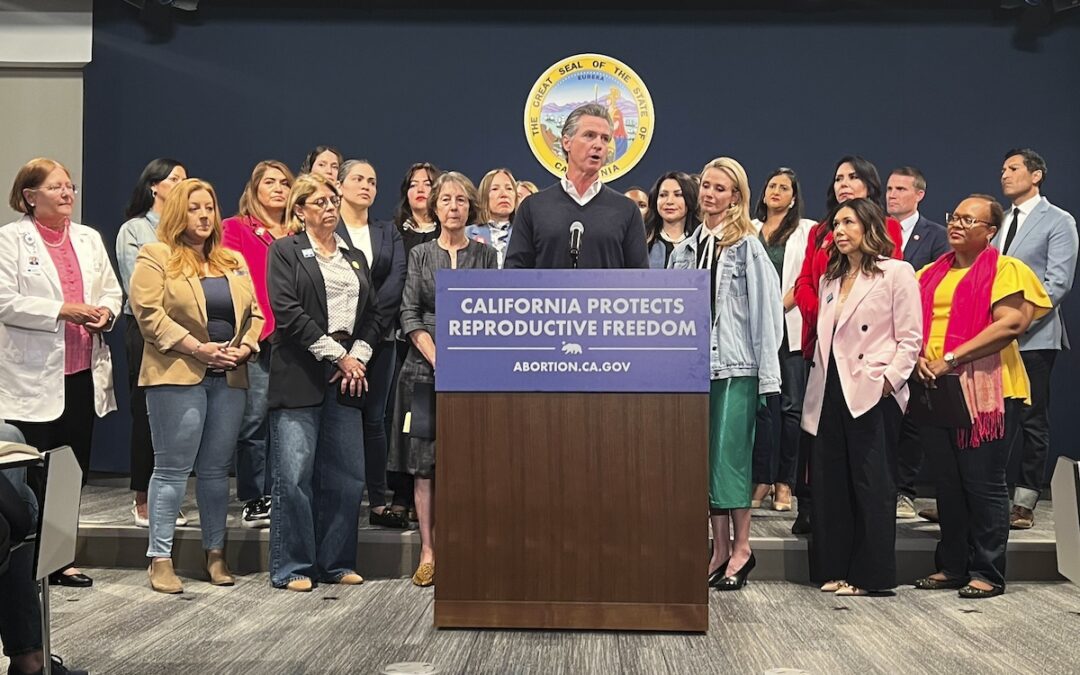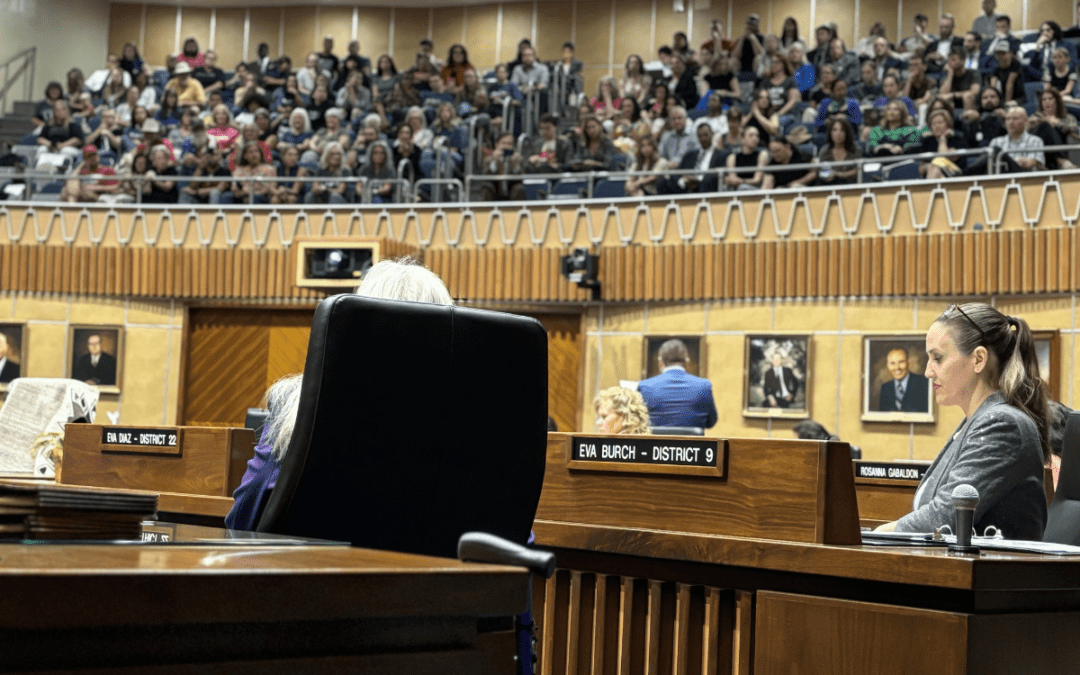
A protestor holds a sign reading 'My Body My Choice' at a Women's March rally where Arizona Secretary of State and Democratic gubernatorial candidate Katie Hobbs spoke outside the State Capitol on October 8, 2022 in Phoenix, Arizona. (Photo by Mario Tama/Getty Images)
There are no exceptions for rape or incest, and the penalty for aiding with an abortion is a minimum two-year prison sentence.
The Arizona Supreme Court Tuesday announced the reinstatement of an 1864 law that criminalizes abortion care of any kind, except to save the life of the mother.
Abortion services in the state will now be banned in nearly every instance, and any medical provider found in violation will receive a minimum sentence of two years in prison.
“Horrified. Devastated. Disgusted. Those words don’t even begin to describe how I’m feeling. Stand up. FIGHT BACK,” Arizona Rep. Analise Ortiz, D-Maryvale, tweeted after the ruling.
The ruling states that the law can only be enforced prospectively, and that enforcement is on hold for 14 days.
According to the Arizona Republic, an agreement from a separate lawsuit says the state cannot enforce the ban for an additional 45 days—meaning the state has about 60 days until enforcement can begin.
It’s also possible that challenges to the ban could lead to another pause on enforcement that could last months.
“My message to Arizona women is this: I won’t rest, and I won’t stop fighting until we have secured the right to abortion,” Democratic Gov. Katie Hobbs said in a statement.
How we got here
Until Tuesday, Arizona operated under “harmonized,” or hybrid version of the 1864 law and an abortion ban passed in 2022, which gave doctors the ability to administer abortion care up to 15 weeks of pregnancy, with non-physicians being banned from performing the procedure completely.
“I signed the 15-week law as Governor because it is thoughtful conservative policy, and an approach to this very sensitive issue that Arizonans can actually agree on,” Republican former Gov. Doug Ducey tweeted. “The ruling today is not the outcome I would have preferred, and I call on our elected leaders to heed the will of the people and address this issue with a policy that is workable and reflective of our electorate.”
The lawsuit to reinstate the 1864 ban was championed under former Attorney General Mark Brnovich, a Republican, who set the wheels in motion to reinstate the total abortion ban in July 2022. Enforcement of the ban had been blocked in 1973, when the US Supreme Court ruled to protect abortion care as a constitutional right in Roe v. Wade. When the current Supreme Court reversed Roe in June 2022, Brnovich argued that meant the 1864 ban should be enforced.
Lawsuits for and against a plethora of abortion bans have made their way through various courts in the months that followed, resulting in the harmonized 15-week abortion ban—and now, the reinstatement of the total ban. The current attorney general, Kris Mayes, argued against the ban, and has said that she would not prosecute medical providers for violating the state’s prohibitive reproductive healthcare laws.
“The decision made by the Arizona Supreme Court today is unconscionable and an affront to freedom,” Mayes said in a statement. “Make no mistake, by effectively striking down a law passed this century and replacing it with one from 160 years ago, the Court has risked the health and lives of Arizonans.”
What happens next
While Mayes’ office has no plans to enforce the ban, its existence alone is expected to have a chilling effect on providers—including medical professionals who are opting not to work in states with restrictive reproductive laws. It also could put fertility care like in vitro fertilization at risk, as the removal of the 2022 law opens up fertility clinics to wrongful death lawsuits.
“We have always helped people who need abortions get out of state when necessary—including after the Dobbs decision in 2022, when this harmful ban was last in effect,” Eloisa Lopez, executive director of Pro-Choice Arizona and the Abortion Fund of Arizona, said in a statement. “The Abortion Fund of Arizona is more prepared than ever to ensure our helpline callers have the resources to cross state lines to access essential abortion care.”
Despite the court’s decision, abortion rights groups remain optimistic. Organizers for Arizona for Abortion Access Act are working on another avenue to protect reproductive rights in the state: so far, over 500,000 signatures have been collected for a ballot proposition to amend the Arizona Constitution to make abortion access a protected right in the state.
If they get enough signatures to place the measure on the November 2024 ballot and voters approve it, their effort would restore and expand the reproductive rights that were removed when the US Supreme Court overturned Roe last year.
Those interested in signing the petition or volunteering with Arizona for Abortion Access can find more information on their website.
Correction: This story has been updated to reflect the delay in enforcement of the 1864 abortion law.
Subscribe to The Copper Courier’s daily newsletter! We keep it 💯—just like the temperature.
Politics

Gov. Gavin Newsom wants to let Arizona doctors provide abortions in California
California law generally allows abortion up to the point of fetal viability, which is around 24 weeks. SACRAMENTO, Calif. (AP) — Arizona doctors...

VIDEO: Arizona Attorney General Kris Mayes indicts 18 ‘fake electors’
@coppercourier An Arizona grand jury has indicted former President Donald Trump's chief of staff, Mark Meadows, lawyer Rudy Giuliani, and 16...
Local News

Escape the heat at these indoor pools in Tucson
Arizona: it's synonymous with sunny. Mix that sun with the sprawling urban blacktops and the result is the nationally recognized heat that is...

We asked, you answered: 7 music venues in Arizona for a more intimate show
The biggest artists in the world come to Arizona to perform at places like Footprint Center, State Farm Stadium, and Desert Diamond Arena. But what...






